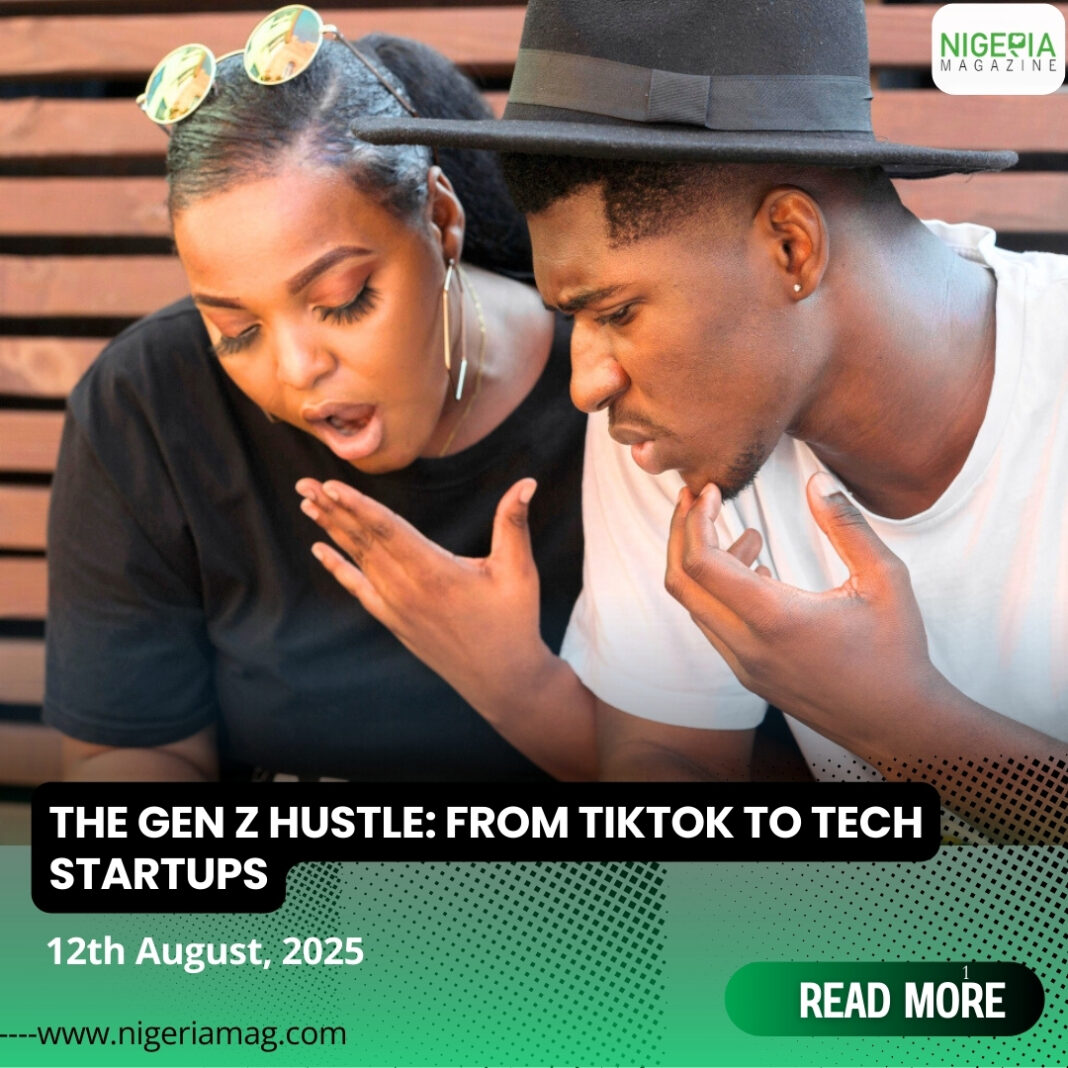In 2025, the term “side hustle” barely scratches the surface of how Generation Z approaches work. For a generation raised in an era of rapid technological shifts, economic uncertainty, and global connectivity, the hustle has become more than a way to make extra cash—it’s a way of life, a statement of independence, and increasingly, a fast track to building sustainable careers.
From viral TikTok creators monetising their influence to young founders launching AI-powered startups, Gen Z is rewriting the rules of work, blending creativity, digital savvy, and entrepreneurial grit.

The Rise of the Creator-Entrepreneur
A decade ago, social media “influencer” was considered a niche career. Today, it’s a mainstream entry point into entrepreneurship. TikTok, with its billion-plus active users, remains a key launchpad for young hustlers. But unlike the early influencer economy—dominated by brand deals and sponsorships—Gen Z creators in 2025 are building multi-layered revenue streams.
They’re selling digital products, launching e-commerce brands, offering online courses, and even licensing their content as intellectual property. Many see TikTok and Instagram Reels not just as platforms for fame, but as free marketing engines to validate business ideas before scaling.
Take the case of Ava Martinez, a 22-year-old in Austin, Texas, who started posting thrift-flip videos during high school. Within two years, she transformed her audience into customers for her sustainable fashion startup. Her company now ships globally and partners with AI-driven supply chain platforms to manage production. As Martinez puts it:
“I didn’t just want likes; I wanted leverage. TikTok gave me my first audience. The business kept them coming back.”
From Scroll to Scale: The Tech Startup Leap
While social media remains the most visible hustle avenue, there’s a parallel shift toward tech entrepreneurship. Gen Z is entering the startup scene younger than any generation before, often bypassing traditional corporate paths entirely.
Accessible coding bootcamps, no-code development platforms, and AI-assisted product design tools mean that a motivated 19-year-old can take an idea from concept to market within weeks. The barrier to entry has dropped dramatically—but so has the tolerance for outdated business models.
According to a 2025 Global Youth Entrepreneurship Report, over 34% of Gen Z founders are building businesses with AI as a core component, from mental health chatbots to fintech platforms aimed at underserved communities. Many are not waiting for venture capital; instead, they bootstrap using revenue from their online gigs or crowdsource funding through digital communities.
The Multi-Stream Mindset
What sets Gen Z hustlers apart from earlier generations isn’t just their digital fluency—it’s their refusal to be defined by a single career lane. It’s common to meet someone who is simultaneously:
✔️Running a drop-shipping business
✔️Consulting on brand strategy
✔️Selling merch linked to a personal brand
✔️Experimenting with NFTs or Web3 collectibles
✔️Building a SaaS tool in their spare time
This multi-stream approach is both a hedge against economic volatility and a reflection of their comfort in hybrid, decentralised work environments.
The Cultural Shift: Work as Identity
Millennials popularised the “do what you love” mantra; Gen Z is refining it into “do what works, and make it yours.” Their hustles often blend personal values with commercial goals—be it environmental activism, mental wellness, or social justice. The result is a wave of businesses that are as much about impact as they are about income.
Yet, this passion-driven hustle culture comes with a cost. The constant push to monetise every skill or hobby can blur the line between work and rest, leading to burnout. The mental health conversation remains central, with many creators and founders openly discussing the toll of always being “on.”
From Gig Economy to Ownership Economy
In the early 2020s, many Gen Z workers turned to gig platforms like Uber, DoorDash, or Fiverr to supplement income. But the real hustle was always about ownership—of their brand, their audience, their products, and their data.
In 2025, the most successful Gen Z hustlers are those who’ve shifted from renting their labour on platforms to building their own. They are turning short-term gigs into springboards for long-term ventures:
✔️A food delivery driver launching a meal-prep subscription service.
✔️A freelance graphic designer creating a design automation SaaS.
✔️A Twitch streamer developing a gaming merchandise brand.
The Tools of the Trade
Gen Z hustlers are deeply tool-driven, leveraging:
✔️AI Assistants for market research, copywriting, and coding.
✔️Blockchain for transparent contracts, creator royalties, and microtransactions.
✔️No-Code Platforms like Webflow and Bubble for building MVPs without developers.
✔️E-commerce Integrations that connect TikTok shops, Shopify, and fulfillment centers seamlessly.
✔️Virtual Collaboration Suites that make cross-border teams the norm.
They’re not just early adopters—they’re early disruptors.
Challenges on the Road to Success
For all its glamour on social media, the Gen Z hustle is not without obstacles:
✍🏾Market Saturation – Viral niches burn out quickly.
✍🏾Algorithm Dependence – Entire businesses can be upended by platform policy changes.
✍🏾Financial Literacy Gaps – Many struggle with scaling sustainably or managing taxes.
✍🏾Mental Strain – The “always working” lifestyle can lead to isolation and burnout.
The most resilient hustlers are those who diversify platforms, build direct customer relationships, and seek mentorship from seasoned entrepreneurs.
The Future of the Hustle
If the past five years have been about proving that Gen Z can build careers outside the corporate mold, the next five will be about ownership, sustainability, and global reach. As more young entrepreneurs bypass traditional gatekeepers—whether in media, finance, or tech—they are setting new standards for independence.
The hustle is no longer just about making ends meet. It’s about building something that lasts, something that reflects who they are in a world where identity and work are more intertwined than ever.
In the words of Kofi Mensah, a 25-year-old Ghanaian app developer who turned a viral TikTok idea into a venture-backed fintech startup:
“For us, the hustle isn’t a phase—it’s the plan. The difference is, we want to own the road we’re running on.”


